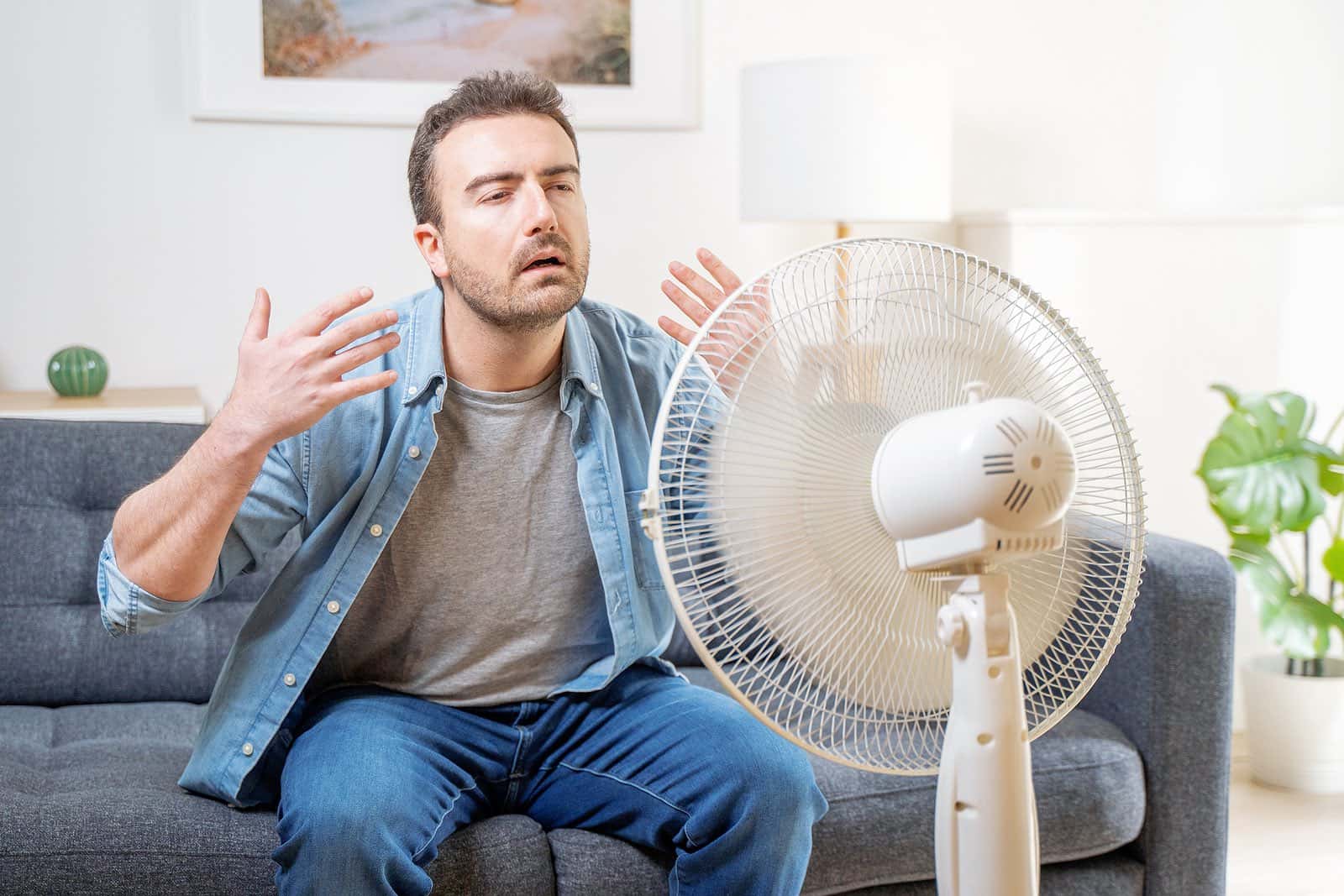
Most people think of hot flashes as a woman’s problem. They are not uncommon around menopause. That’s why doctors prescribed HRT (hormone replacement therapy) in large quantities during the 1990s. Most people have forgotten that Premarin was the most prescribed drug in the US in 1992. But men can also experience hot flashes. A standard treatment for prostate cancer involves something called ADT (Androgen Deprivation Therapy). It involves medications that deplete the body of testosterone. That can trigger a man’s hot flashes.
When Testosterone Falls Fast, a Man’s Hot Flashes Often Follow:
We recently heard from a woman about her husband’s hot flashes:
Q. My husband had been getting testosterone shots every three weeks for many years for Low T. I was concerned that this might be affecting his heart, so he agreed to stop the shots this summer and see how he felt.
Within a few weeks, he began experiencing hot flashes, especially at night, and wasn’t sleeping well. He went back on the shots and now is back to normal. Did stopping the testosterone shots abruptly cause the hot flashes?
A. When men experience a sudden drop in testosterone levels, such as during prostate cancer treatment, they often experience what doctors call vasomotor symptoms. That’s another way of saying hot flashes and sweating.
When your husband stopped getting injections of testosterone, it is quite likely that his hormone levels fell rapidly and triggered the symptoms.
Testosterone and the Heart
The FDA used to warn physicians and patients that taking testosterone could increase the risk for heart attacks and strokes. The agency reversed course on February 28, 2025. It removed the previous warning about adverse cardiovascular outcomes linked to supplemental testosterone. Some data even suggest that men with “low T” may have a greater risk of cardiovascular disease and mortality (Annals of Internal Medicine, May 14, 2024). You can read all about the FDA’s testosterone flip-flop at this link.
A Man’s Hot Flashes After Prostate Cancer Treatment:
Some years ago we heard from this gentleman about his vasomotor symptoms:
Q. I always thought hot flashes were a woman’s problem. Ever since treatment for prostate cancer I have suffered with hot flashes day and night.
My wife says I can now appreciate how miserable she was during menopause. My doctor has not been very helpful. Is there anything I can take to ease these hot flashes?
Here’s how we responded back then:
A. Hot flashes seem to be related to changes in hormone levels, but the exact mechanism is somewhat mysterious. Doctors have had some success easing them with non-hormonal approaches. These include antidepressants like Paxil (paroxetine) and Effexor (venlafaxine). They have also experimented with the anti-seizure drug Neurontin (gabapentin).
We have become less supportive of such approaches. That’s because antidepressants and gabapentin have their own complications. You can read our recent review of antidepressants at this link. And gabapentin has its own challenges. Here is an article you might find enlightening:
The Dark Side of Gabapentin as an Off Label Med
The hidden hazards of off label med usage. Do doctors reveal they are prescribing medicines for unapproved uses? The rogue Rx of gabapentin.
Other options may include female hormones (low-dose estrogen or medroxyprogesterone). Side effects, such as blood clots and weight gain may be a problem. Acupuncture and St. John’s wort may also be helpful. Whatever treatment you consider, please find a physician who is understanding and knowledgeable about this uncomfortable condition.

